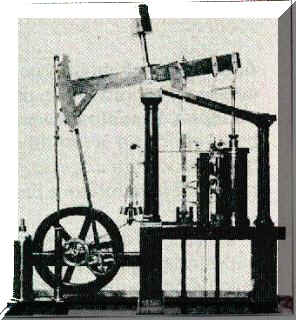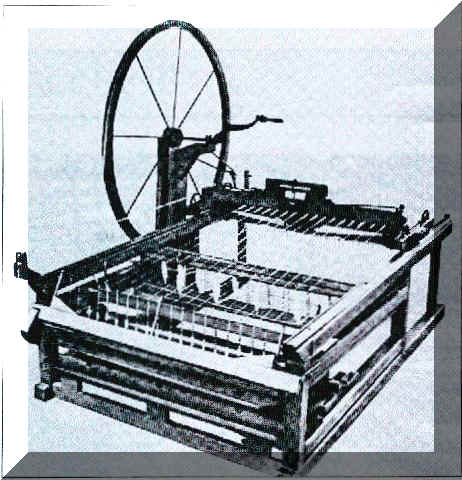 The
industrial revolution
The
industrial revolution
 The
industrial revolution
The
industrial revolution
The changes that transformed England into a modern industrial country within the half of the 19th century weren't so violent as the term " Revolution " would indicate, but surely they were radical enaugh to merit this name.
The I.R. did not mean only a series of technical improvements but humane and social changes too; in fact it reacted on man himiself. The effect of these profound changes was to break up the harmony of the social order bringinig new classes into being and creating a gulf between capital and labour. This antagonism, which is easily met even nowadays in aur industrialized cilization, led to the proletariats' struggle for the recognition of their rights. So what determined the beginning of the I.R. was the passage from a state of domestic production to the concentration of the means of production in the haud of one employer. This change came first in England and from there gradually spread all over the World.
One of fundamental economic conditions that favoured the Brithish industrialization was the migration from the country to the town because of agriculture transformation ( enclosures ) which forced masses of countrymen to leave the country. They provided the labour needed for the I.R.
The changes that took place at this time in agriculture technique (new fertilizers, crop rotation, new agricolture machinery) , and in the distribution of classes among the rural population, created conditions without which the I.R. would have been impossible. The rapid industrialization of Britain was made possible also by its abundance of energy ( coal and iron ). At first it was coal which was the country's richest natural resource.
 It
supplied energy to the most important industries by means of the
steam engine. Through canals and later mechanical transport, large quantities of
goods were carried quickly and cheaply. Big industrial centres could be
found araund coal minies, above all in the Midlands and in the north: they
were full of people and black chimneys. Here conditions were bad: men women and
children worked for long hours usually from 5am. to 9pm. and their wages
were very low.
It
supplied energy to the most important industries by means of the
steam engine. Through canals and later mechanical transport, large quantities of
goods were carried quickly and cheaply. Big industrial centres could be
found araund coal minies, above all in the Midlands and in the north: they
were full of people and black chimneys. Here conditions were bad: men women and
children worked for long hours usually from 5am. to 9pm. and their wages
were very low.
This situation was possible because the state didn't interfere in the life of industrial towns. The invention of new machines led to an increasing in Steam engine the production and the improved technology affected various industries.
An example is the textile industry, mainly the cotton production. Up the middle of the 18th. century the machines used for making cotton and woollen cloth were very simple and were operated by hand. Towards the end of the century new machineries were invented like


the spinning jenny by HARGREAVES the mule by Arkwright. These inventions introduced the metod of mass production. The factory system favoured a new society in england. At the top there were the upper and middle classes, made up of bankers, merchants and landowers.
They had economy power as well as political power.
Spinning jenny Mule